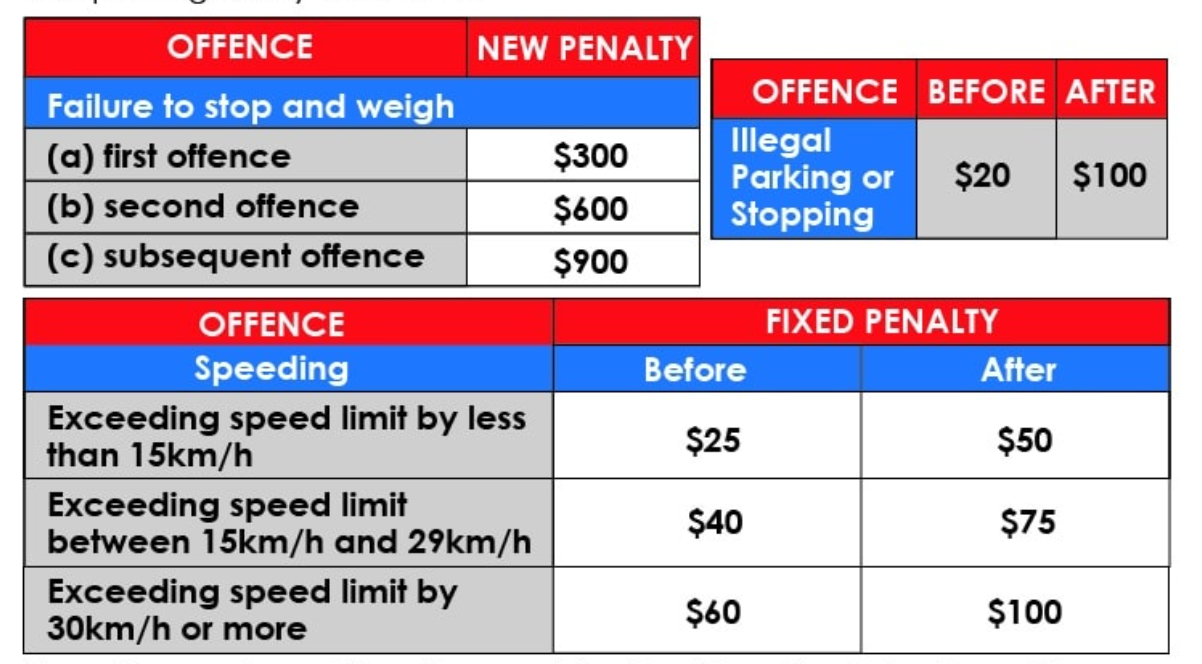In a move aimed at enhancing road safety and compliance, the Land Transport Authority (LTA) has released a new schedule of fixed penalties for several common traffic offences, with fines seeing substantial increases across the board.
These fines will come into effect once the amended Land Transport (Fees and Penalties) Regulations 2000 is gazetted.
The updated penalties, which come into effect immediately, target illegal parking, speeding, and failures to comply with weighing instructions.
One of the most dramatic hikes is for illegal parking or stopping. The fine for this common offence has been quintupled, rising from a previous fee of $20 to a new penalty of $100.
The LTA has also revised fines for speeding violations, with increases for all tiers of offence.
Exceeding the speed limit by less than 15km/h – the fine has doubled from $25 to $50.
Exceeding the speed limit between 15km/h and 29km/h – the fine has risen from $40 to $75.
Exceeding the speed limit by 30km/h or more – the penalty has increased from $60 to $100.
For commercial drivers, the penalties for failing to stop and weigh vehicles have been standardised at new, significantly higher rates. The LTA has introduced a three-tier system based on repeat offences.
First offence will have a fine $300, second offence will see a fine of $600 and subsequent offences has fine of $900.
“Given recent increases in road fatalities, with 72 deaths recorded as of 28th November 2025, compared to 56 for the same period last year, and speeding identified as the leading cause, the amendments will also bring into effect higher penalties for illegal parking, stopping, and exceeding speed limits across Fiji’s roads,” said Minister for Public Works, Meteorological Services and Transport, Ro Filipe Tuisawau.
“These stricter penalties are intended to deter high-risk behaviour and improve overall road safety as the persistent issuance of TINs indicated that the current penalties are not sufficient to act as an effective deterrent.”
Mr Tuisawau said the implementation of these measures aligned with broader national priorities on transport reform and public safety, and reinforced the Government’s commitment to safer roads, fairer permit processes, and the protection of public infrastructure.



